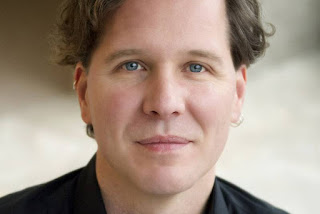Stephen Roberts
The Chronicle Herald
December 17, 2020
A Corner Brook university professor has co-authored a new book exploring the emergence of pandemic conspiracy theories.
Grenfell Campus folklorist John Bodner is one of six authors of Covid-19 Conspiracy Theories: QAnon, 5G, the New World Order and Other Viral Ideas.
Per a synopsis, the book “examines the most popular COVID-19 theories, connecting current conspiracy beliefs to long-standing fears and urban legends. By examining the vehicles and mechanisms of COVID-19 conspiracy, readers can better understand how theories spread and how to respond to misinformation.”
Bodner believes such a book can be useful to the general public.
“The pandemic has really partially been defined by conspiracy theories,” he told SaltWire Network. “We were hoping if people had an interest or if they had relatives or friends who were getting into conspiracy theories, that this kind of book might help people to understand what’s going on.”
The project was initiated by Wendy Welch, the executive director of the Graduate Medical Education Consortium of Southwest Virginia.
She wanted to pursue the project given the life-or-death stakes of many conspiracy theories, including anti-mask and anti-vaccination theories.
“There were these really targeted campaigns of misinformation that were killing people,” she told SaltWire Network.
She knew Bodner through their time together attending Memorial University and sought his participation in the book.
Bodner says he has been interested in conspiracy theories since he was a youth. But it is not his area of expertise. Nevertheless, he agreed to participate.
Bodner’s chief contributions focused upon QAnon, 5G, and the origin of COVID-19 conspiracy theories.
Welch’s primary focus is on vaccine hesitancy and the role of Christian apocalypticism in conspiracy formation.
Understanding conspiracy theories
According to Bodner, conspiracy theories always exist in the background of society, but they become more prominent in moments of social crisis and strain.
“People will use conspiracy theories to try to explain ambiguous and troubling events that appear new or threatening and beyond an individual’s control,” he said.
He believes what is novel about the pandemic is the information gap that existed from the beginning.
Conspiracy theories were often used to fill that gap.
Both Bodner and Welch believe the political use of conspiracy theories, by figures such as United States President Donald Trump, and the unfiltered spread of misinformation through social media, laid the groundwork for their emergence in the midst of the pandemic.
The authors believe understanding these background details is important in order to empathize with conspiracy theorists.
At the end of the book, the authors try to offer some advice as to how to escape from conspiracy theories and from the groups that form around them.
Both Bodner and Welch feel a conciliatory tone is more appropriate in attempts to communicate with people who believe in conspiracy theories.
Welch implores people not to argue with others publicly on social media. She says it is better to message the person privately.
“Outrage feeds the monster, it never talks anyone out of anything - please, for all of us, just don’t do it,” she said.
Bodner and Welch advise demonstrating a way in which you connect with the individual, for example, a shared interest or personal connection, to show compassion and empathy.
This is better than shaming the person or being confrontational.
Anyone interested in learning more can purchase the book at mcfarlandbooks.com. It will also soon be available through Newfoundland and Labrador Public Libraries.
Ian Brodie, Anna Muldoon, Donald Leech, and Ashley Marshall co-authored the book with Bodner and Welch.
Conspiracy theories in Newfoundland and Labrador?
Bodner stresses more data is needed to determine the prevalence of conspiracy theorists within Newfoundland and Labrador.
While there are individuals who identify as conspiracy theorists within the province, he doesn’t believe Newfoundland and Labrador has seen the same critical mass of belief that has led to protests and organized movements informed by conspiracies in other places.
Bodner suggests this may be because Newfoundlanders and Labradorians generally score higher in terms of trust in government and in community.
“Higher trust tends to tamp down rumour and conspiracy,” Bodner explained. “The idea there are threatening strangers conspiring to destroy your life doesn’t fit very well in communities where people know each other and where there’s a fairly high level of trust and predictability between people.”
He adds this does not mean rumours surrounding COVID-19 cases do not exist within communities, but there have not been much in the way of suggestions of actual conspiracies surrounding these cases.
This also does not mean Newfoundlanders and Labradorians don’t believe conspiracies exist on a national or international level - such beliefs are just less likely on a local level.
https://www.thechronicleherald.ca/news/canada/corner-brook-university-professor-explores-covid-19-conspiracy-theories-in-new-book-532319/


No comments:
Post a Comment